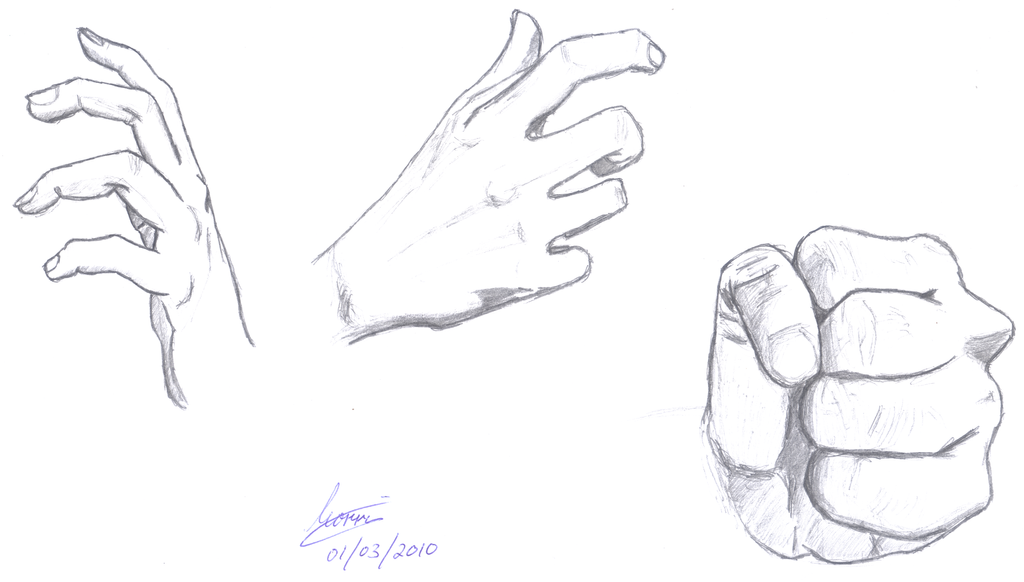Learning--and the Three Hands

The word "hand" plays a role in many very common figures of speech.
- Such expressions are useful or "handy."
- They come easily to us: they're "ready-to-hand."
And yet their exact meanings and origins are obscure––probably exactly because they are so common.
The familiar distinction between "firsthand" and "secondhand" is important to law and to journalism.
- Eyewitness testimony is "firsthand," and it's the gold standard for journalists.
- "Secondhand" report is, in some legal situations, inadmissable, and much journalism is just that: a secondhand recounting of a firsthand observation.
A "thirdhand" account would be someone relaying a secondhand account––and so on.
To use an example, take: riding a roller coaster.
- A firsthand experience is: riding the roller coaster.
- A secondhand experience is: watching someone else ride the roller coaster.
- A thirdhand experience is: hearing an account by the person who watched the person riding.
To be more abstract:
- Firsthandedness means: experience.
- Secondhandness means: observation.
- Thirdhandness means: symbolic mediation, reducing experience and observation to a transmissible form.
So what has all this to do with learning––my recurring theme in these blog posts?
Much of higher learning is thirdhand. We read books that summarize knowledge. Often these books don't even include direct observation, and they may even summarize other books (which may summarize other books, and so on). You could say: we observe knowledge and talk about its features and how it's produced. We encounter knowledge as it's encoded in symbols.
While some see video lectures as 'revolutionary,' we are still talking about thirdhand experience: someone summarizing something someone else saw or did. Does it matter so much that it's watched on a smartphone on a bus?
Some college courses have more firsthand experience than others.
- Science classes still have labs where the students do science themselves.
- The study of literature always involves a firsthand experience of a poem or novel or play.
- Some social science courses include direct observation and learning to be a semi-professional observer: a child development course may involve going to watch pre-school students.
- And fine arts, when studied as a practice, must involve doing: you can't just read and write about painting; you must paint with your very own hands.
But many college courses simply involve encountering symbolic representations of facts and abstractions. It is this sense in which college students end up with "no real-world experience." Sometimes that's meant to be a damning claim, when it in fact misses the point. But from the point-of-view of building knowledge in all the possible ways we will need to build it, this kind of thirdhand learning is seriously deficient.
To read about poverty, see films about it, acquire facts and theories about it is completely unlike observing poverty with one's own eyes and ears, let alone being poor oneself. It's with this fact in mind that instructors have students do things like: volunteer at the local food pantry or soup kitchen, try to eat for a week on the same allowance as received under 'food stamps,' and the like.
You can download all the lectures you like, do online quizzes until your fingers bleed: you will never have the same involvement in the subject matter as experiencing it or seeing it for yourself.
(I don't think a film about the topic entirely counts, because it's still someone's constructed symbolic account. In a film, the form constructs meanings for you. By contrast, if you experience and observe for yourself it's incumbent on you to construct the meaning, and from a humanistic perspective, that's where the heart of the matter resides: in taking responsibility for ascribing meaning and discovering one's own agency in that act and process.)
You may object: but very important knowledge comes in books and other symbolic media. Fine and good. But who knows something significant about roller coasters?
- The person who has read all the relevant information?
- The person who watched one being ridden?
- Or the person who has ridden the roller coaster herself?
It seems to me that: a complete, well-rounded education on roller coasters would involve some of each.
More broadly: not all learning in life comes from books and symbols; we also need to learn by doing and by observing. And we significantly short-change our students when we deprive them of practice in firsthand and secondhand learning.
A quick formula would then be a more complete education requires at least some of all three 'hands.'
- Students should do things themselves: experience the subject matter firsthand.
- Students should observe the phenomena under study as directly as possible: learn by secondhand observation, interviewing, etc.
- Students should consume (but also produce) thirdhand accounts of the facts and knowledge they are venturing to acquire: learn by reading and writing thirdhand representations of the phenomena under consideration.
If we did this, students would become more deeply involved in the topic, while also learning techniques of observation that are often highly transferrable to new situations.
And we would then produce students more prepared to convert the raw material of experience and observation into reliable knowledge.
––Edward R. O'Neill
This comment has been removed by a blog administrator.
ReplyDeletedasda
ReplyDeleteManaging Learning Technology focuses on using digital tools effectively to enhance teaching and learning experiences. By understanding these strategies, hearthstats net news gains insight into improving education systems and supporting innovative learning environments.
ReplyDelete